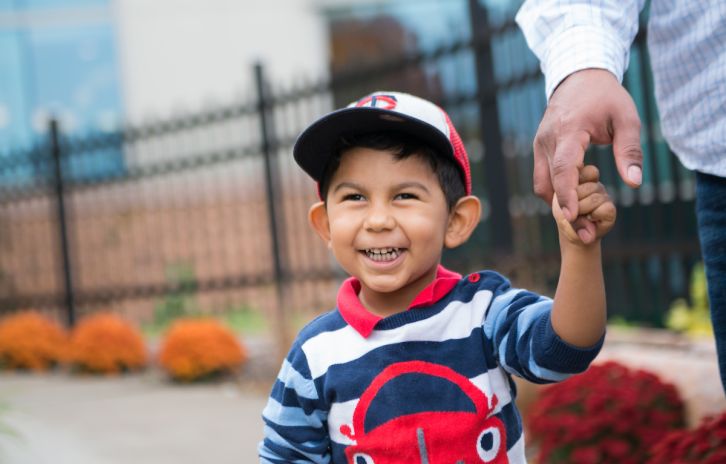“Just give her a piece of paper. See if she writes anything.”
It was at once a simple idea and an act of desperation.
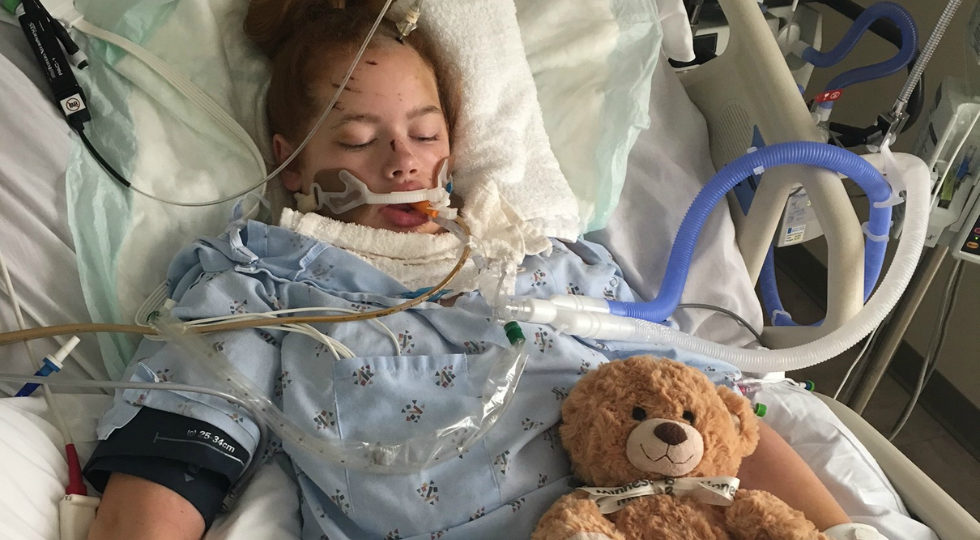
Parris Oswald, 15, had been in a catastrophic car accident and had suffered (among other things) a traumatic brain injury (TBI). She had been unresponsive and in an agitated state for days, so when her mother, Farrah, handed her a pen and paper, there was no real reason to hope for anything substantial in return.
Then Parris took the pen and scrawled out a note. It read:
“I love you.”
“In that moment, it was the first time we were sure that Parris was still in there somewhere,” Farrah recounts. “It was difficult to fully understand. She couldn’t talk to us, but she was aware of much more than we realized.”
The Mysterious Brain
“The thing about the brain is, well, the brain is weird.” – Nathan Baertsch, PhD
Can we just take a second, all of us together, and and acknowledge the reality that for all the things we do know about the brain, there’s still a lot we don’t know.
Is it a super computer, an internal self, a soul? Where do dreams come from? What about creativity, or music? Why are some people dyslexic and others great at recognizing faces?
“While there are many things we do know about the brain, how it functions and the pathways that control certain body areas or tasks, what are largely unknown are the specifics of how the brain will recover after an injury,” says Angela Sinner, DO, who treated Parris at Gillette Children’s. “We don’t always know how rewiring will occur, to what extent recovery will occur, or how long it will take. It’s an imperfect process that is difficult to predict, and it varies with every patient.”
While knowing this, there’s something mysterious and terrifying about a brain that isn’t functioning properly. For all that our brains can do, they’re fragile, almost ethereal.
It’s not a broken arm. You can’t see it or touch it. It’s not really tangible, which means that we rarely spend time thinking about the thing that makes us think, unless we have to.
This is what those who experience a TBI go through.
Coming Out of the Storm
As Parris’ family will tell you, one of the hardest parts about dealing with a TBI is all of the waiting that is required. Before they had even gotten to Gillette, Parris had been in an Alabama hospital—near where the car accident had occurred—for 19 days.
“We had such a traumatic experience in Alabama, the first night we were at Gillette I was scared to go home and rest. I hadn’t slept in weeks,” Farrah says. “Her nurse that night could see that and she said to me, ‘Parris is in the best care here. We believe that we need to touch the soul of every child so they will come back to us.’ It was the first time I felt like we were in the right place and that things would be OK.”
That said, even after getting to the right place, it’s not like things changed overnight.
“We had that breakthrough moment with Parris writing the note, but that’s not what most of our days were like,” Farrah says. “The patience required of us was draining, but the staff at Gillette kept us going and supported us through all of it.”
As the days and weeks progressed, Parris began to show improvement.
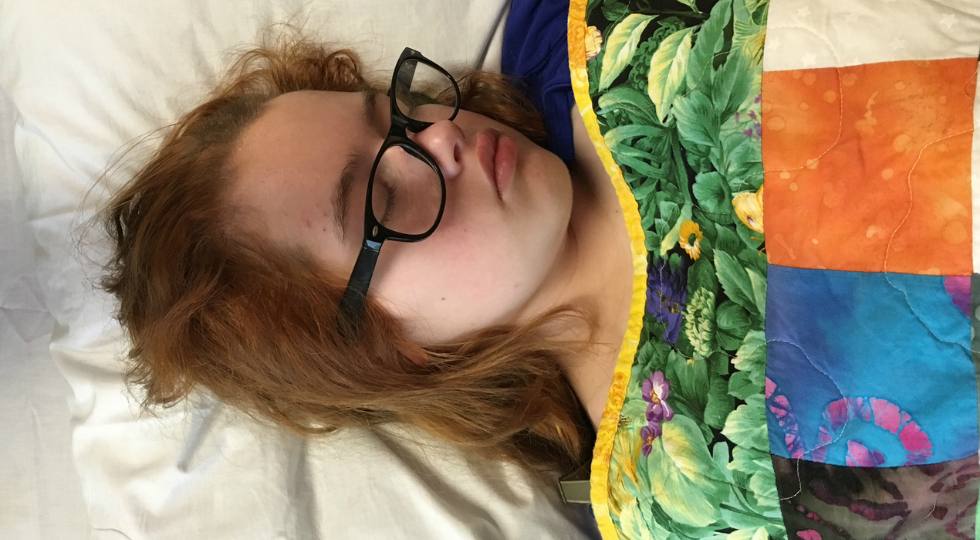
“Every brain injury is different, but we do have a quantitative measure for their severity called the Ranchos Los Amigos scale,” Sinner says. “When Parris came to us she was in the stage of the recovery process where patients often experience extreme confusion and agitation. Understandably, this can be unnerving for a family to see. Our role during treatment is to guide the child and her family through the varying levels of this process, as we try to get our patient back to baseline.”
“I don’t want to say miracle, but miraculous, sure.”
Under the care of Sinner, as well as the neurological and therapy teams at Gillette, Parris continued to improve.
She arrived at the hospital on April 17. On May 25, she walked out of Gillette under her own power.
“Based upon where she was at when she came to us, for Parris to improve so quickly, it’s remarkable,” Sinner says. “Medical professionals tend to refrain from using the word miracle, but ‘miraculous’ is definitely how I’d describe it.”
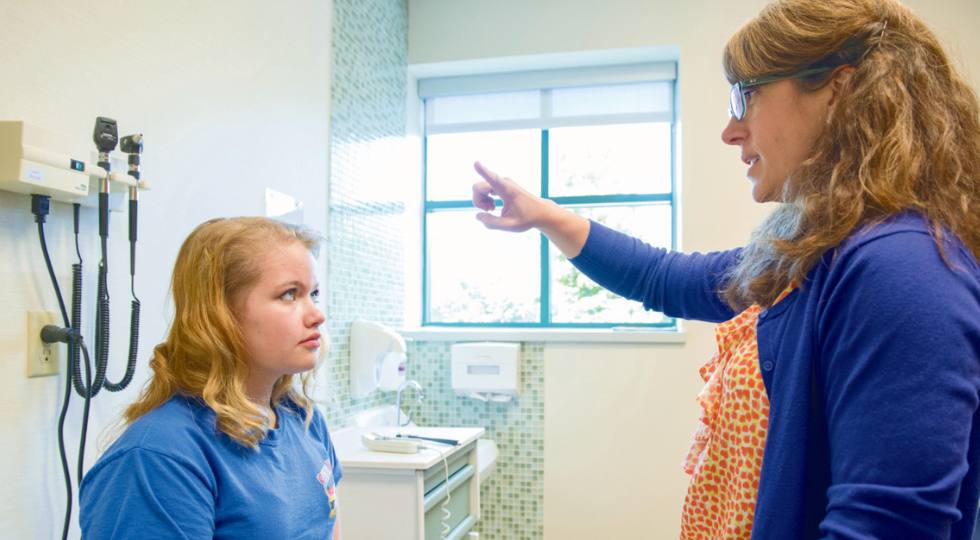
Where We Go From Here
While it’d be easy to tie a big bow on things and market Parris’ recovery as a cut-and-dry success story, real life is usually more complicated than that.
“It’s hard to adequately and appropriately express,” Farrah says. “Things were so bad initially that the fact that she’s walking and talking and eating, everyone is just overjoyed. But it’s not like there aren’t lingering challenges. Parris today is a different person than the one who was in that accident. The people that truly know her can see that, and what makes it even harder is that she knows it, too.”
Before the accident, Parris never used to have conflict with her younger sister. Now she does sometimes.
She was an exceptional student prior to the accident, and now she has difficulty remembering some skills she had previously mastered.
According to Sinner, these are some of the things that take the most time to come back.
“It’s not something that anyone ever wants to think about,” Sinner says. “We spend our whole lives learning and perfecting certain skills, and you never consider that in one moment those things could just be gone. That’s why our team does what we do; it’s our goal to get these kids to where they want to be.”
Now starting the new school year, Parris’ team at Gillette is working with her family as well as her high school to ensure that she has adequate support transitioning back into the classroom. She’ll be a Sophomore this year.
“The support we’ve received at Gillette as well as from our friends and family in the community, it’s just been incredible,” Farrah says. “Sometimes you don’t always realize how many people you have on your team, or the love that exists in your life.
We nearly lost our girl, but it was our love for her that got us through that, and it’s the same thing that’s going to get us through any challenge we face going forward. As long as we have that, we know we’ll be just fine.”
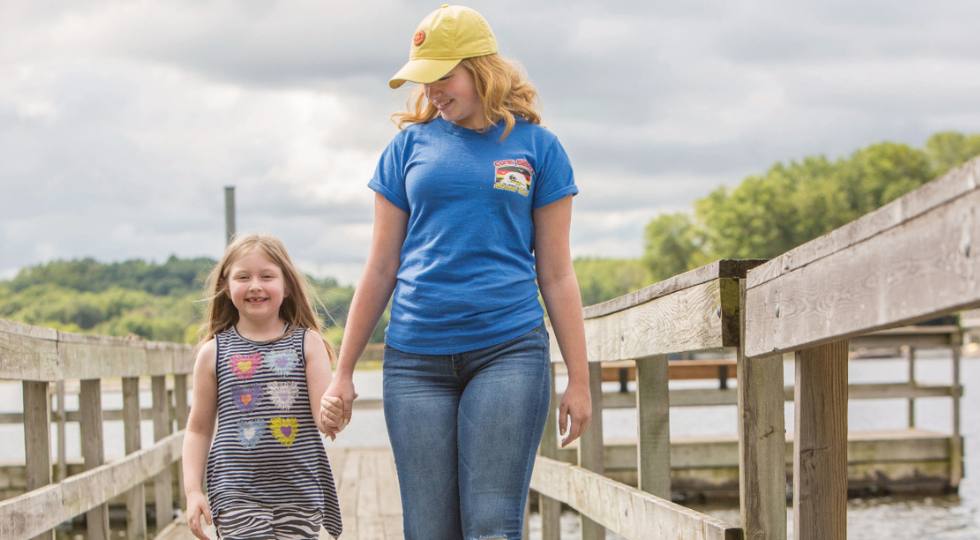
Do these symptoms sound familiar? Our 30-minute consult appointment could help get answers.
Request an appointment to connect with Gillette providers.
Meet a care team provider, find a location, learn how to get a second opinion, and more.
Gillette kids fuel our mission. You provide the spark. Donate today.

